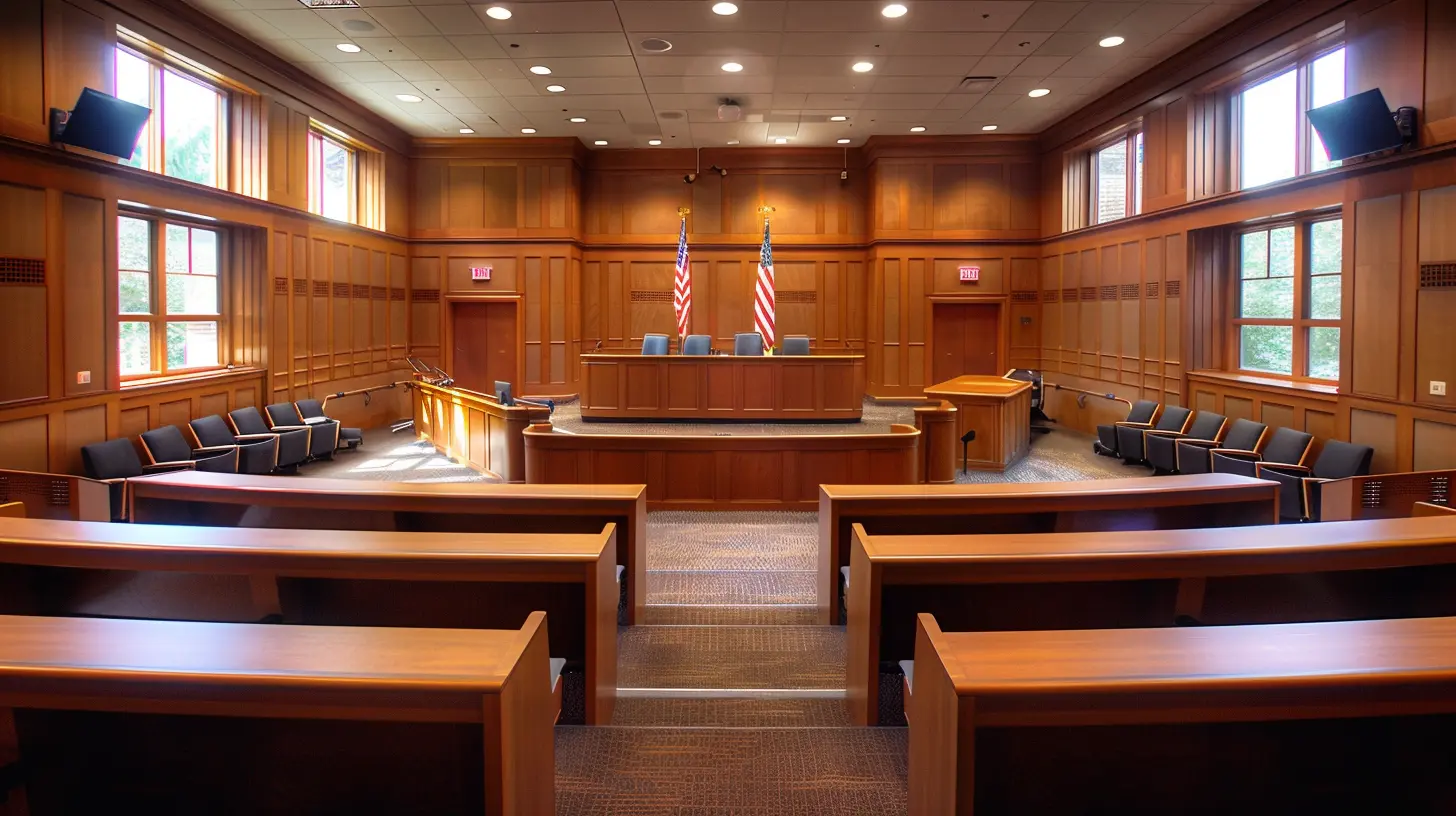The Role of Psychological Testing in Courtroom Evaluations
19 August 2025
Ever watched a legal drama and thought, “Why is a psychologist testifying in court?” You’re not alone. For many people, the idea of psychology entering a courtroom sounds mysterious or unnecessary. But in reality, psychological testing plays a crucial, behind-the-scenes role in the justice system. It helps judges, lawyers, and juries make more informed decisions about a person’s mental state, competence, or even risk to society.
Let’s break down exactly what psychological testing in courtroom evaluations is, what it looks like, and why it matters—for the legal system and for the individuals involved.
What Is Psychological Testing, Anyway?
Before diving into the courtroom scene, let’s clarify what psychological testing actually is. Think of it as a toolbox filled with carefully crafted tools—assessments, tests, and techniques that dig deep into a person’s mind. These tools help psychologists measure mental health, cognitive abilities, personality traits, and more.We're not talking about a BuzzFeed quiz here. These are scientifically validated tests like the MMPI-2 (Minnesota Multiphasic Personality Inventory) or the WAIS (Wechsler Adult Intelligence Scale). Trained professionals interpret the results to answer serious legal questions.
Why Does the Court Care About Psychological Testing?
Great question. In a legal setting, your mental state matters—a lot.Judges and attorneys aren’t mental health experts. Yet, they often face cases where someone’s psychological condition could sway the entire outcome. This includes everything from criminal responsibility to child custody battles. And that’s where psychological testing enters the spotlight.
Here’s why the court leans on psychological evaluations:
- Determining Competency: Is the defendant mentally fit to stand trial?
- Assessing Criminal Responsibility: Could a mental illness have influenced the crime?
- Evaluating Risk: Does this person pose a danger to themselves or others?
- Child Custody Cases: Who’s emotionally and mentally equipped to raise a child?
- Insanity Defense: Was the accused aware of their actions and their consequences?
When lives, freedom, and justice are on the line, a standardized and objective process is everything. Psychological testing brings that structure.
Common Legal Scenarios Where Testing Is Used
Let’s dive into real-world examples because, let’s face it, theory is boring without application. Here are the most common court situations where psychological testing plays a starring role.1. Competency to Stand Trial
One of the most frequent uses is to determine whether someone is mentally capable of standing trial. The court wants to know: Can this person understand what’s happening? Can they contribute to their own defense?A person suffering from severe schizophrenia, for example, may be so detached from reality that participating in a trial would be impossible. Using tests like the MacArthur Competence Assessment Tool, psychologists can objectively assess a person's mental ability to grasp legal proceedings.
2. Insanity Defense Evaluations
This is where things get even trickier. The insanity defense hinges on whether someone could understand the criminal nature of their actions at the time of the offense.Psychological testing helps unpack a person’s mental state at the time of the crime. It's like doing mental archaeology—digging into the past to understand motive, perception, and awareness using tools like structured clinical interviews and historical psychological assessments.
3. Child Custody and Family Law
Family courts increasingly rely on psychological evaluations to decide what’s best for a child. In cases of divorce, abuse, or neglect, psychological testing can assess parenting capacity, uncover mental health issues, and evaluate the child’s emotional needs.Tests like the Parenting Stress Index or the Child Behavior Checklist can give an honest, data-driven look at family dynamics.
4. Sentencing and Risk Assessment
Will the defendant repeat the crime? Are they a danger to society? Courts now use psychological tools to forecast future behavior. Instruments such as the HCR-20 or the LSI-R (Level of Service Inventory) help assess risk levels and can influence whether someone receives prison time, probation, or mental health treatment.
Types of Psychological Tests Used in Court
Not all tests are created equal. Some are designed to assess intelligence, others look at emotional stability, and still others measure deception and malingering.Here are a few categories of tests you’ll typically find in forensic settings:
1. Intelligence Tests
Helpful for understanding cognitive functioning. Common examples:- Wechsler Adult Intelligence Scale (WAIS)
- Stanford-Binet Intelligence Scales
These help determine if someone has developmental disabilities or cognitive impairments affecting their legal competence.
2. Personality Tests
Used to evaluate traits, behaviors, and emotional functioning.- MMPI-2 (Minnesota Multiphasic Personality Inventory)
- Millon Clinical Multiaxial Inventory (MCMI)
These tests can flag psychological disorders, personality disorders, or emotional instability.
3. Neuropsychological Tests
Assesses brain functioning, often after injury or based on suspected cognitive decline.- Wisconsin Card Sorting Test
- Trail Making Test
These help spot issues with memory, attention, or problem-solving—critical when assessing a person’s ability to make decisions.
4. Risk Assessment Tools
Evaluate how likely someone is to reoffend or become violent.- HCR-20 (Historical, Clinical, Risk Management-20)
- Static-99 (for sex offender risk)
These help courts make sentencing decisions and decide on parole possibilities.
5. Malingering Tests
Yes, some people fake symptoms to dodge responsibility. These tools reveal if someone is trying to game the system.- Structured Interview of Reported Symptoms (SIRS)
- Test of Memory Malingering (TOMM)
The Role of the Forensic Psychologist
You can’t just hand a test to someone and walk away. Interpretation is everything. That’s where forensic psychologists come in.These are mental health professionals specially trained in applying psychology to the legal world. They evaluate individuals, interpret test results, and often provide expert testimony in court. Think of them as translators between two worlds—mental health and law.
They help answer pivotal questions like:
- Is this person faking it?
- Are they competent to stand trial?
- Do they understand right from wrong?
And perhaps most importantly, they do all of this with objectivity and scientific rigor.
Challenges and Controversies
Okay, let’s keep it real—psychological testing in the courtroom isn’t perfect. It comes with its fair share of challenges.1. Cultural Bias
Some psychological tests don’t translate well across different cultures or socioeconomic backgrounds. This can lead to skewed results or unfair conclusions.2. Misuse of Tests
When tests are used incorrectly or interpreted by someone without proper training, it can do more harm than good.3. Ethical Dilemmas
Psychologists must balance confidentiality with the legal responsibility to report findings. Plus, they’re often asked to evaluate people who don’t want to be evaluated, which can skew behavior and results.4. Over-Reliance on Testing
Numbers are powerful, but they’re not the whole story. A test result should never be the sole factor in a legal decision. It’s one tool in a much bigger toolbox.Why Psychological Testing Matters More Than Ever
In today’s fast-paced, high-stakes legal system, decisions have massive consequences. A wrong call could mean an innocent person goes to jail—or a dangerous individual goes free.Psychological testing brings a much-needed dose of objectivity and clarity. It helps the court see beyond physical actions and into the mind—where decisions, motives, and realities are formed.
It’s not about excusing behavior. It’s about understanding it. And when it comes to justice, understanding matters.
Final Thoughts
So, the next time you hear about a psychologist in court, don’t roll your eyes. They’re not just psychoanalyzing someone for fun—they’re playing a vital role in ensuring that justice is truly served.Psychological testing in courtroom evaluations bridges the gap between mental health and the law. It gives every person—defendant, victim, or child—the chance to be seen, understood, and treated fairly.
And in a world where a single decision in court can change a life forever, that understanding can make all the difference.
all images in this post were generated using AI tools
Category:
Psychological TestingAuthor:

Ember Forbes
Discussion
rate this article
1 comments
Alice Turner
Psychological testing aids in fair courtroom evaluations and informed legal decisions.
September 24, 2025 at 4:38 AM

Ember Forbes
Thank you for your comment! Psychological testing indeed enhances the fairness and accuracy of courtroom evaluations, providing valuable insights that inform legal decisions.


